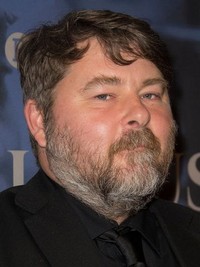Ben Wheatley

The model of a self-made digital age filmmaker, director Ben Wheatley honed his talents as a director for several years by creating viral videos before he eventually broke into feature films. A native of Essex, England, Wheatley first discovered the world of artistic cinema by watching the works of French New Wave director Jean-Luc Godard while attending Haverstock School in London. It was also at Haverstock that Wheatley met his future wife and collaborator, Amy Jump. Following graduation, Wheatley began taking on odd jobs in film and TV production, hoping to gain experience. He worked as an assistant editor and a storyboard artist for several commercials, all while nurturing a love of cinema. The young cinephile even traveled to Paris to see a revival screening of "A Clockwork Orange" (1971) around this time, since the film was banned in England until 1999. After learning the ropes of the industry chiefly through commercial work, Wheatley found himself with the makings of a promising career in marketing. He went into business for himself producing corporate videos for the many new and emerging technology companies entering the marketplace in the late '90s. But when the dot com bubble burst in the early 2000s, Wheatley found himself back at square one. He decided to take matters into his own hands and produce some small projects of his own. Wheatley began with some short Flash animations, which were easy to produce from the comfort of his home computer. Eventually, he shot a very short video titled "Cunning Stunt," starring his friend Robin Hill. The video proved to be the turning point for Wheatley, garnering over 15 million hits. Soon, the director was being tapped to produce viral videos for marketing firms and advertising agencies, even winning the Lion Award at the Cannes International Festival of Creativity in 2006. Wheatley soon transitioned to TV, signing on to write and direct arcs on series like "The Wrong Door" (BBC, 2008-) and "Ideal" (BBC Three, 2005-2011). By 2009, he was ready to direct his first feature film, the crime comedy "Down Terrace" (2009), which Wheatley funded himself. The film starred and was co-written by Wheatley's longtime friend and collaborator Robin Hill, and it made waves in the indie film world. Having established himself as a capable filmmaker, Wheatley wasted no time getting to work on his next project, a crime thriller called "Kill List" (2011). This picture would be the first of many on which Wheatley's wife would serve as writer and editor. Though crime movies had so far proved a great fit for Wheatley, he would diverge from this path with his next project, "Sightseers" (2012). The horror comedy followed the disturbing adventures of two tourists who embark on a killing spree during a road trip through the English countryside. The black comedy attracted "Sean of the Dead" (2004) director Edgar Wright to come on as a producer, and exposed Wheatley to a still wider audience. Once again, however, he wished to explore new themes for his next project, this time dealing in hallucinatory terror with the horror drama "A Field in England" (2013). Inspired by more abstract works like Jim Jarmusch's "Dead Man" (1995), the period film was set during the 17th century and filmed entirely in black and white. Many of Wheatley's peers in the film world were impressed by the director's range. He caught the particularly noteworthy attention of Martin Scorsese, who came on board to executive produce Wheatley's next film, the crime drama "Free Fire."